The Weak Spot of Resumes
Contributed by Bryce Ward
When considering how best to grow your company, it seems reasonable to direct your attention to marketing; however, before you consider how to grow your company, you should first consider who will be growing it. Finding people who align with your company’s values and goals is no easy task – that’s why the hiring process is such a crucial step for any company’s growth. That being said, how can you optimize your hiring process?
Resumes have long been the standard for filtering through potential employees and finding the perfect fit, but should they be going forward? The issue with resumes is that they can be and often are easily manipulated to appeal to employers.
There’s no secret as to what employers are looking for, and due to the long tradition of crafting effective resumes job seekers, more often than not, know what sort of words and attributes employers are looking for in a resume. The consequence is a plethora of practically identical resumes with slightly different variations. They may have different formats and lengths, but the content is essentially the same. Furthermore, as bachelor’s degrees increasingly become the norm, there is little left for employers to differentiate on resumes besides a worker’s past experience, which may not even be a good indicator of future success.
As a response, employers have used a variety of creative interrogative approaches during interviews to differentiate between applicants. Apple, for example, is notorious for asking odd interview questions in an attempt to discover something from an applicant that is hidden in a resume. What this tells us is that a resume, though useful for scanning qualifications and other basic information, is a highly flawed indicator of future employee success. Instead, an applicant’s personality is perhaps the most important aspect to consider when hiring.
Personality can be gauged in a number of ways. Many employers have recently began utilizing personality tests in conjunction with resumes to discover more accurate indicators of future employee success. These tests allow employers to find the ideal match for the workplace in a way that simple eyeballing can’t achieve. Even if your company depends on, say, creative personality traits, you may need a creative person with other relevant attributes such as scrupulousness and organization, traits which a personality test can reveal. Granted, these tests can theoretically be manipulated, but not nearly as easily a resume.
Personality tests aren’t the only way to weed out red flags that are hidden in resumes, either. Apple’s approach can be just as effective so long as you ask the right questions. What matters most is that you place more emphasis on the job applicant than on his or her application; for it is, after all, people, and not words, who determine the trajectory of a company.



